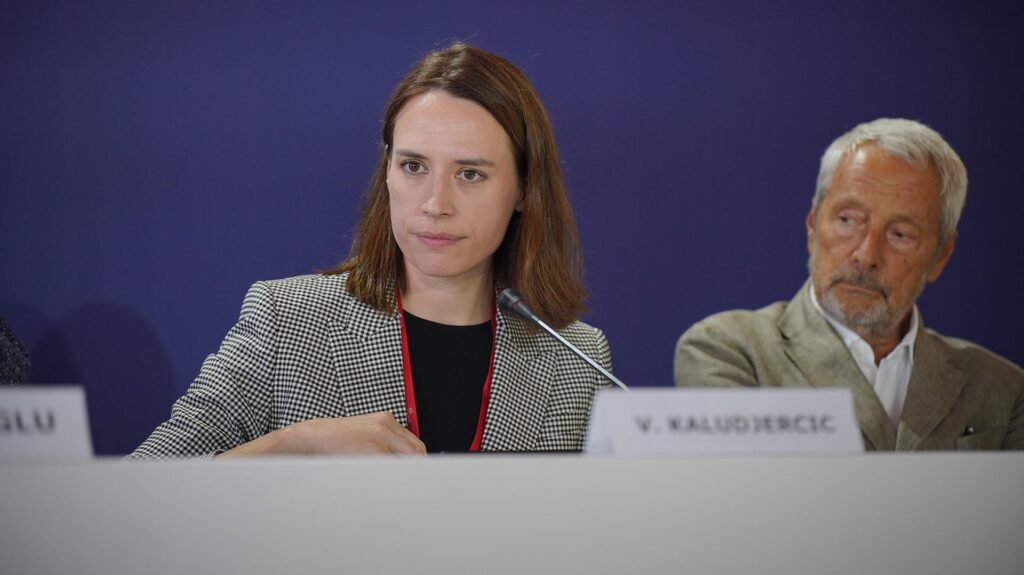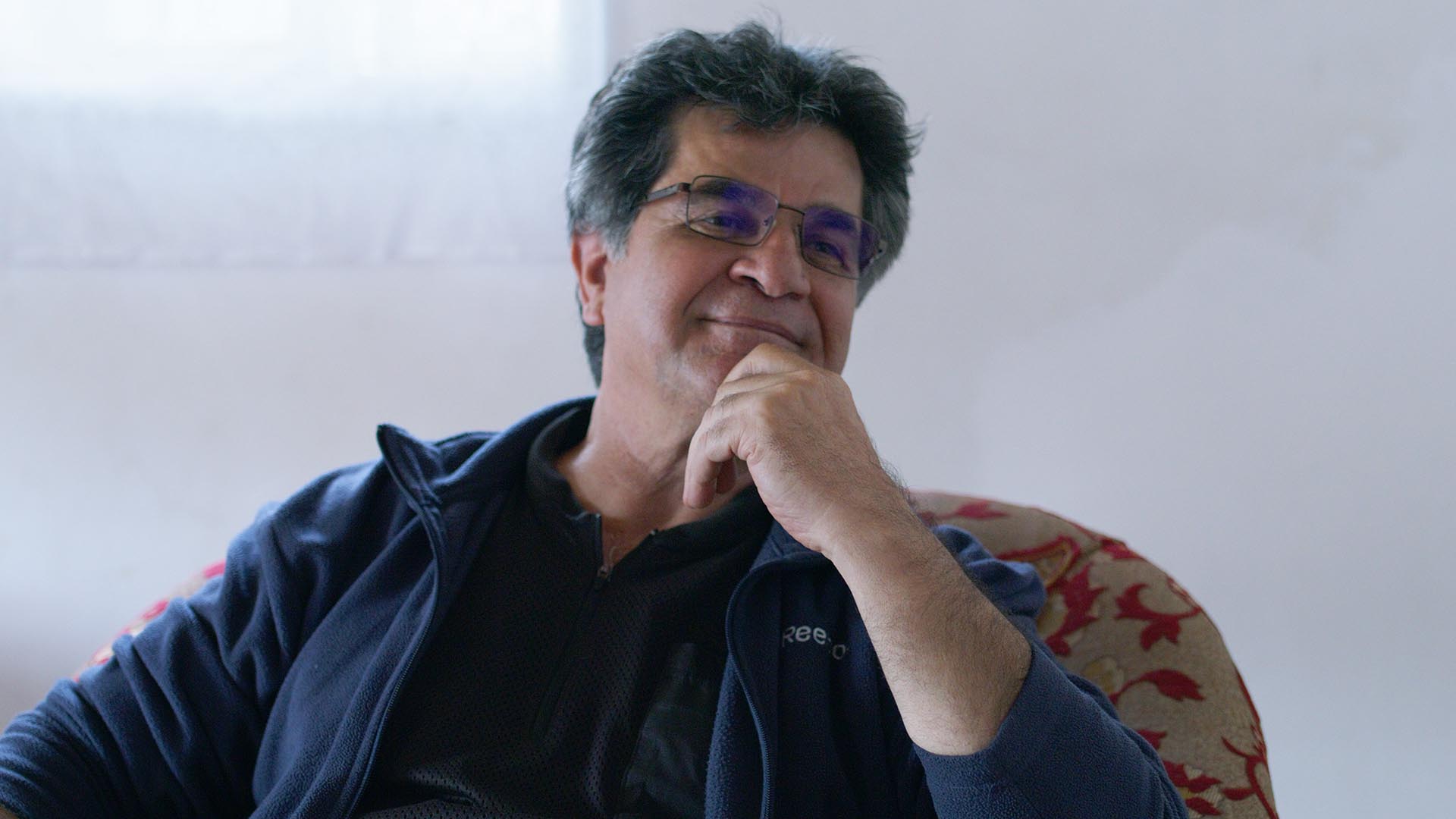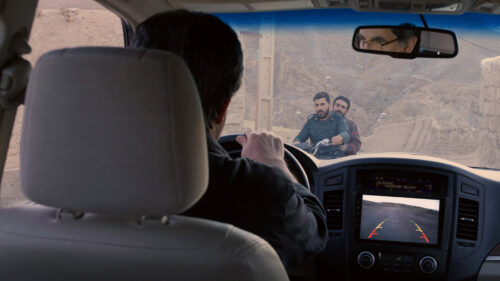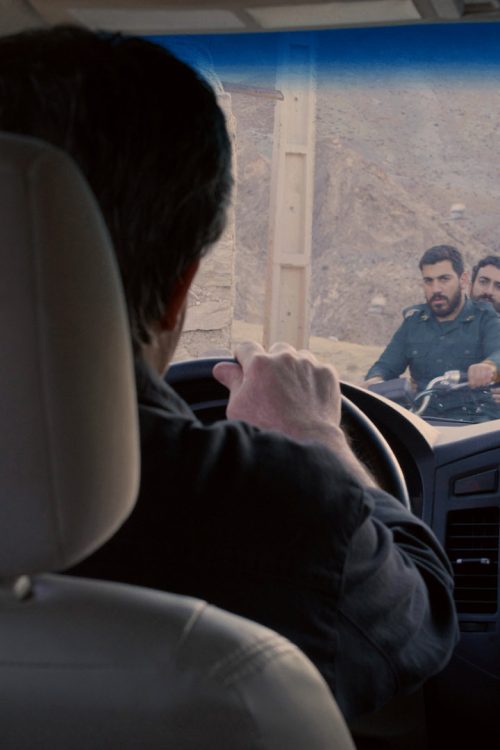
With his latest movie, No Bears, running for the Golden Lion, Jafar Panahi’s absence on the Lido enhances a debate on filmmakers persecuted by regimes.
Filmmakers under attack: Taking stock, taking action, a panel held during the 79th Venice Film Festival on Saturday, September 3, was aimed at discussing the tragic condition of many contemporary filmmakers, deprived of their freedom of expression. The situation in Iran and Turkey constituted the main topic. The panel anticipated a flash mob which took place during the red carpet of Kehrs nist (No Bears, Iran, 107′), directed by Jafar Panahi. He couldn’t take part in the premiere of his film in competition since he is detained after opposing the persecution of filmmakers Mohammad Rasoulof and Mostafa Aleahmad. The accusation made against them by the Iranian government was of having supported the popular uprisings, which were in opposition to the violent measures implemented by the state against its citizens.

Roberto Cicutto underlines that the Biennale, as an institution dealing with art, feels the duty to cope with the peaks of repression in the world. The sensitivity towards censorship and lack of freedom of expression proves it and had been already demonstrated dealing with the situation of Afghanistan, one year ago. Even on that occasion, as explained by Alberto Barbera, La Biennale organized a panel to discuss the condition of the filmmakers residing in the country.
Orwa Nyrabia, Director of the International Documentary Film Festival in Amsterdam, explained that the coordinated action of groups of filmmakers coming from all over the world, supported by several ONGs, made it possible to relocate 60% of Afghan filmmakers with their families. This showed how much concrete global support can make a difference even when, as in this case, there is no effective economic aid. However, Nyrabia added, it must be recognized that the general mobilization proved to be ephemeral and limited a few months later, with the exhaustion of the media attention around the Taliban coup. This makes us reflect on the risk of quickly forgetting these dramatic situations, which are not fully resolved yet, just because they are no longer on the front page of the major newspapers.
Vanja Kaluđerčić, Director of the Rotterdam International Film Festival, highlighted how much the international community must protect each citizen’s freedom of expression, having in mind also the current situation in Ukraine. It is essential to raise as many funds as possible. In fact, public and private donations have increased significantly in the last period, reflecting the growing sensitivity to the issue of freedom of expression, but not as much as it would be necessary for satisfying all the countless help requests.
The testimony of an Iranian filmmaker has enriched the discussion and has made it possible to investigate more deeply the shadows of Rasoulof and Aleahmad’s story. The news concerning their capture reached the population when the police were still at their homes. The spontaneous conclusion is that it was a specific plan arranged by the government to attack Iraqi film production. However, there was also a positive aspect: the wave of repression planned by the government had to be slowed down because of the large international mobilization that took place after Rasoulof and Aleahmad’s arrest.
Sinem Sakaoglu gives another testimony that comes from Turkey about the arrest and consequent sentencing to eighteen years of prison for Cigdem Mater. The accusation against her is of having thought – and, it should be emphasized, only thought – to produce a documentary about the popular uprisings that threw the capital into chaos in 2013.
International support for these and all other directors, filmmakers and artists arrested or imprisoned in the last year was expressed yesterday afternoon with the flash mob on the red carpet because, as recalled by Mike Downey, President of the European Film Academy, if the global community wants to act more efficiently, it is essential to partially abandon reactivity for embracing more proactivity.

Two stories, running parallel to one another, show social and cultural opposition in modern Iran. Panahi stars himself as a director who faces the opposition of the Iranian village bordering Turkey where he and his crew are filming. The local populace merely tolerate their pre...

Two stories, running parallel to one another, show social and cultural opposition in modern Iran. Panahi stars himself as a director who faces the opposition of the Iranian village bordering Turkey where he and his crew are fil...
No results found.